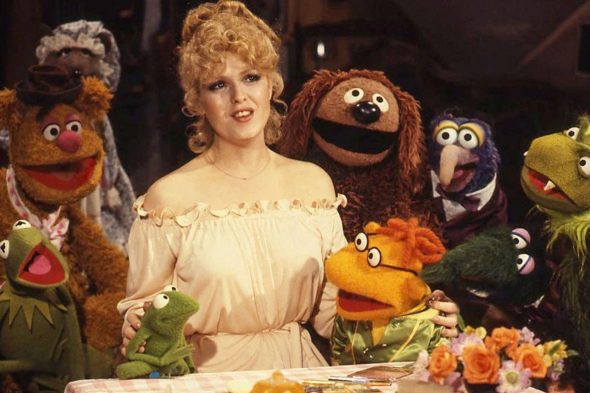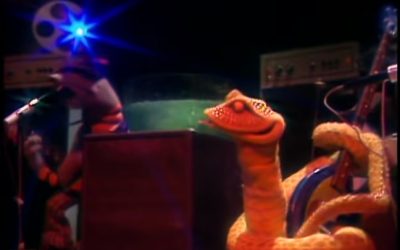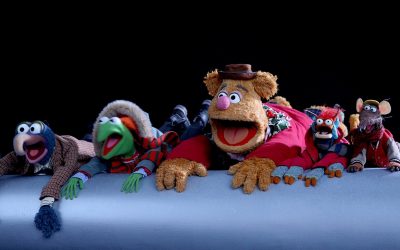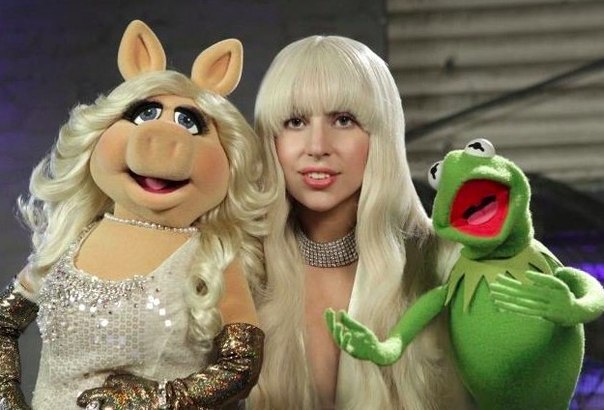Part 1 – Part 2 – Part 3 – Part 4 – Part 5
We need to talk about Muppetized Songs.
I mean, we actually don’t need to – nobody ever needs to think about Muppets in order to live, unless they’re at a certain radio station in New Zealand in 1996, which you’re not. But, hey, I just figured that, since you’re here and I’m here, and this traffic jam I’m sitting in isn’t moving, we might as well explore some Muppet nonsense.
So, what do I mean by “Muppetized Songs?” These are songs that The Muppets didn’t create, but which nevertheless seem to belong to them, at least in our minds. I can’t remember if anyone else has coined the term “Muppropriation” yet, but if not, I’ll take the credit/blame for it, because that’s what this article is about – songs covered by Muppets in such a way that they become Muppet songs.
I’ve put together a nifty little list of such songs, so let’s take a look at each one to see if we can figure out how the heck Muppropriation works.
Halfway Down the Stairs
Original song written by A.A. Milne, with music by Harold Fraser-Simson.
With both this song and “Cottleston Pie,” I think it helped The Muppets that these A.A. Milne poems were known, but their melodies, I assume, weren’t. That gave The Muppets some room to make these their own, but it still doesn’t account for how “Halfway Down the Stairs” by Robin the Frog was a Top 10 hit in the UK in 1977.
What makes the difference here is that it’s Robin doing a song that’s just right for Robin. This would not have been such a big hit for Miss Piggy or Lew Zealand or Marvin Suggs, but I encourage all of them to take a stab at it.
Mr. Bassman
Original song written by Johnny Cymbal. No, that’s not his real name.
This and other Muppetized songs aren’t too associated with memorable artists, and that makes it more likely that we’ll hear the Muppet version first and connect with the Muppet version more. It’s different when Gonzo sings “My Way” – we all know that’s a Sinatra song, and that’s part of what makes it interesting when Gonzo sings it. Nobody cares about Bobby Cymbal. (Apologies to anybody who cares about Bobby Cymbal!)
Even still, I think the characters matter the most, and not just because Floyd is a bassman. There’s a holy trinity of Scooter songs that easily count among the most beloved Muppet songs: “Mr. Bassman,” “Simon Smith and the Amazing Dancing Bear,” and “Six String Orchestra.” They’re all about a kid trying to make it in show business. That’s Scooter. Even though they’re all covers, they’re definitely Scooter songs, and you could make a strong case for including any of them on this list.
There’s a New Sound
Original song written by Tony Burrello and Tom Murray. It was created in an attempt to record the worst song ever heard. They succeeded.
The Muppets get to have this song because nobody else wants it.
Just One Person
Music by Larry Grossman, lyrics by Hal Hackady. Written for “Snoopy! The Musical.”
Another important element of Muppetized songs is the song’s idea, philosophy, or theme. It’s so obvious that it feels weird to write it, but it kind of seems to matter what the song is about. A song like “Mah Na Mah Na” or “Coconut” may have no theme besides, “Hey, this is really silly!” That’s still a very Jim Henson idea, and you’ll find Jim Henson’s philosophy in a bunch of the other major Muppet songs, covers or not. “Just One Person” and “We Got Us” are both songs from musicals that were performed on The Muppet Show by the guest stars, so it’s kind of remarkable that they feel like they belong to The Muppets, but they both capture that message that we’d like to think The Muppets are all about – supporting each other! In both “Just One Person” and “The Wishing Song,” you hear Jim Henson’s positive outlook on life.
For as much as The Muppets (including the Sesame gang) made use of “Just One Person” a heck of a lot in their heyday, this song is of particular importance because of how it was used in Jim Henson’s memorial service and The Muppets Celebrate Jim Henson, and there aren’t many better ways to canonize something as a Muppet thing than that. It was the perfect song for a very specific moment, and we’re all still processing that moment. That keeps the song alive, and keeps it theirs. Snoopy could never reclaim it.

Now, let’s revisit the big question: which other songs count as “Muppetized” songs? It looks like there’s criteria that a Muppetized song will almost invariably meet most of, and it’s about what you’d expect:
- The song was already in the aether, but not too big, before The Muppets did it;
- The song is a bop;
- The song is ideal for the specific Muppet characters performing it;
- The original artist’s recording is not beloved enough to demand comparison;
- The song appeared in multiple productions and/or on multiple albums;
- The song was used for important moments and/or important albums;
- The theme of the song is very Jim Henson.
I suspect that any song checking 6 of the 7 boxes could be understood as a Muppetized song, with 4 out of 7 counting as “semi-Muppetized”. And that’s how math works. The big determining factor, however, is always just how much The Muppets insist on making a song part of their brand over time, as we’ll see with the subject of tomorrow’s article, “Mah Na Mah Na” – the ultimate example of a Muppetized song.
This still leaves me with questions though. How much does it matter if a song was already a signature song for someone else, such as “Happy Feet” or “Lydia, the Tattooed Lady”? How much credit should a song get for appearing on a Muppet greatest hits album? What do we make of “Bohemian Rhapsody”?
I’d answer that, but the traffic from the accident has finally cleared and I should probably focus on the road, so you all are going to have to sort this out on your own. Gosh, I wish we Muppet fans had a good place to talk these things through together. Say, wait, a second… we do! It’s called the ToughPigs forum!
Click here to visit the ToughPigs forum on the ToughPigs forum!
by J.D. Hansel



